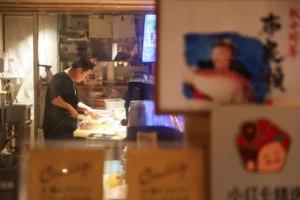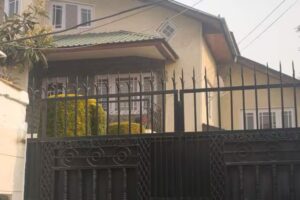
SINGAPORE: A housewife has been ordered to pay S$25,000 (US$19,500) in damages for defaming a company that sells produce from Taiwan, because she made disparaging comments about its kale and beansprouts, including calling the vegetables “poisonous”.
According to a judgment made available on Tuesday (Sep 9), the company, D’Season, sued Ms Sophia Wu Chao Wen over a post she made on her Facebook page on Mar 13, 2022.
D’Season specialises in the import, distribution, sale and wholesale of goods and produce from Taiwan.
In the post, Ms Wu, who is a housewife living in Singapore but originally from Taiwan, attached photos of kale and beansprouts and a screenshot from a Chinese article with a photo of beansprouts.
She wrote: “It’s shocking, seriously, that someone would even dare to sell such ugly vegetables! Those who already paid are really unlucky! What ‘organic veggies from Taiwan’?! This is basically poisonous vegetables! Is it because they lack knowledge? Or are they just turning a blind eye for money and asking everyone to pick out the good ones? A pack with this much bad stuff is toxic, and they still want customers to pick through it – that’s just disregarding human life!! Honestly, back when I went to the market, even the vegetables that the vendor tossed on the ground for the rabbits were way better than this!”
The screenshot that she posted was of an answer to a question on whether a person can still eat yellow beansprouts if they have turned black. The answer in the screenshot cautioned people against eating them, claiming they contained a toxin with a “strong carcinogenic effect” and that some “shady vendors use chemicals to make the yellow beansprouts look abundant and nice”.
Ms Wu had 410 Facebook friends who could view the post. It garnered 43 reactions, and she posted comments in response to some of the replies she received.
When one woman asked her where the vegetables were from, Ms Wu replied: “The unforgettable lychee side.”
This is in reference to an incident involving the company when it sold lychees in around June 2021 that turned out to be overripe. The company then asked customers to pick out the overripe lychees and offered them refunds.
When someone else told Ms Wu that “this is crazy” and advised her to “just buy beansprouts in Singapore”, Ms Wu said that “what they’re selling is organic” and later added “might end up in the hospital”.
The company sent Ms Wu a letter of demand in April 2022 asking her to remove the post and publish an apology.
Ms Wu said she deleted the post a few days later. She did not apologise.
The company sought general damages of at least S$35,000 and initially did not plead a specific amount for special damages. Later, it sought at least S$110,000.
According to the company, Ms Wu had defamed it, including by making statements that it sold poisonous or spoilt vegetables, that it cheats its customers and that it adds chemicals to its vegetables while claiming they are organic.
Ms Wu denied that she had defamed the company. She said she could not have asserted that the company added chemicals to its vegetables as the company had not produced the vegetables.
She denied intending to refer to the company when referring to the lychee incident, and said she had deleted the post in any event.
She said she believed the screenshot of the article about the yellow beansprouts because she had a friend who fell sick and almost died from eating blackened sprouts. However, the company said that she did not identify this friend or call him as a witness.
The judge found that the post was defamatory, saying a reader of the post would form the view that the seller conducts its business in a dishonest or improper manner, and the seller’s estimation would therefore be lowered in the eyes of a reasonable person.
While the company argued that Ms Wu had published the post because she was a promoter or supporter of a competitor company, the judge found that there was not enough evidence that Ms Wu had received benefits in exchange for the post.
The judge ordered Ms Wu to pay D’Season S$15,000 in general damages and S$10,000 in special damages, with interest at 5.33 per cent per annum from the date of the judgment to the date of payment.





